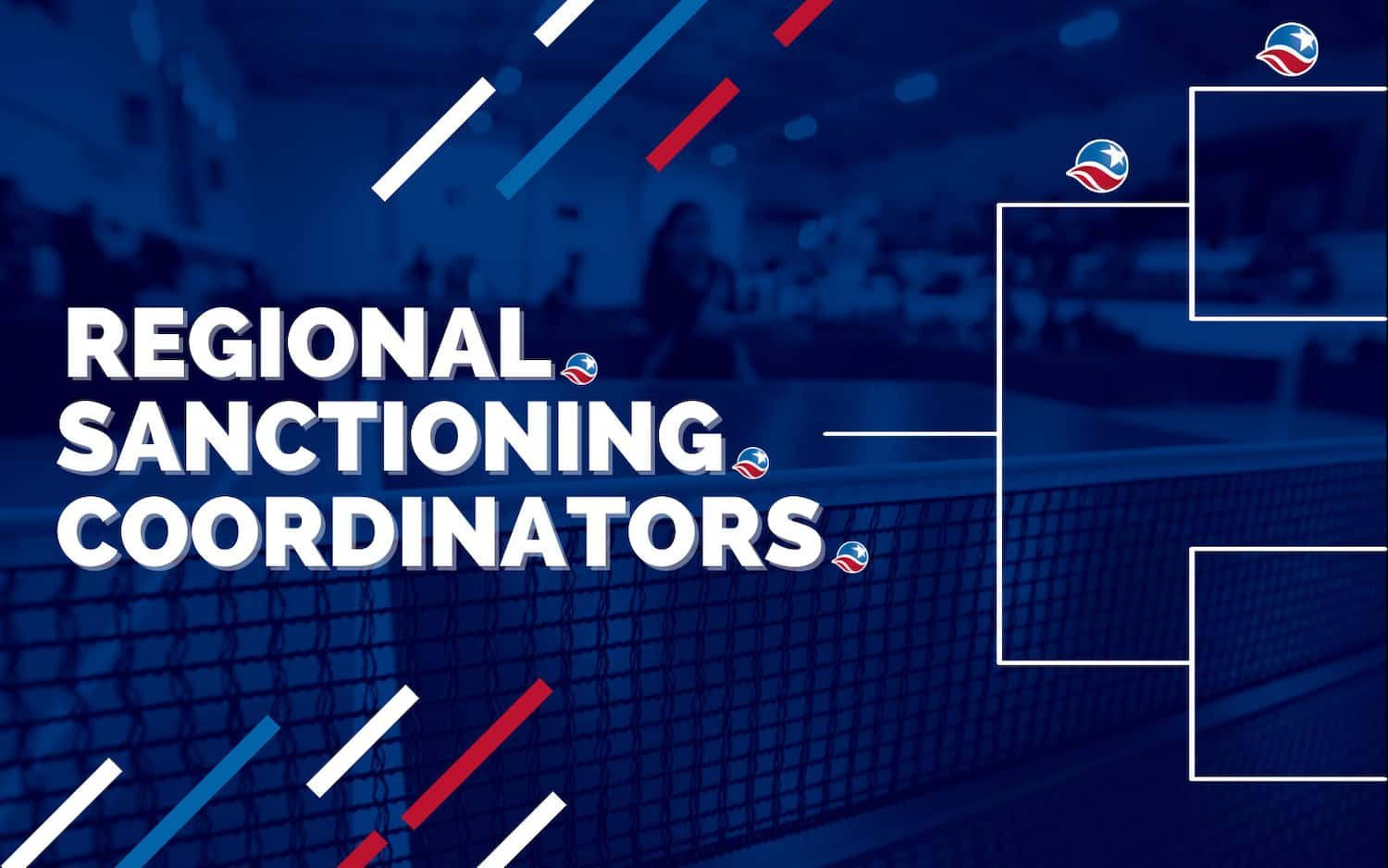
USATT Salutes Regional Sanctioning Coordinators
by USA Table Tennis

As Some of the Most Experienced and Dedicated Volunteers in the USATT Organizational Hierarchy, RSCs Serve a Critical Function in the Operation of USATT Sanctioned Tournaments
(Colorado Springs, CO – February 8, 2022) – USA Table Tennis (“USATT”) today recognized the outstanding service of some of the organization’s most experienced, dedicated, and important volunteers: the Regional Sanctioning Coordinators. Serving as the critical nexus between tournament directors and USATT as the national sanctioning body, the RSCs evaluate, approve, and monitor all sanctioned tournaments on the USATT Calendar. The eight-member crew led by National Sanctioning Coordinator, Larry Thoman, has an even greater, if somewhat unseen, role in the smooth operation of the tournament sanctioning process, answering questions, closely reviewing documents for compliance issues, providing guidance, and maintaining fairness and integrity of the sanctioning system.
“This is certainly one of the most unsung and important groups of dedicated professionals serving our organization,” said Chief Executive Officer Virginia Sung. “For the most part, people become members of USATT to play in sanctioned tournaments where our members have come to expect a consistent and reliable quality of experience. It is the dedication, knowledge and effort of our Sanctioning Coordinators that ensure the fundamental fairness and smooth operation of this process. Even in an era where USATT is committed to reducing paperwork and digitizing our processes, performance still comes down to people. The individuals serving in the RSC capacity – several of whom have been doing this for over a decade – have truly expressed their commitment to, and love for, our sport with their self-less service.”
The RSC crew includes some of the country’s most experienced table tennis experts, handling the tournament sanctioning requests submitted by tournament directors in the eight USATT geographic regions. The RSC crew is comprised of Edmund Suen (East Region); Ed Hogshead (Midwest Region), Mitch Seidenfeld (North Region); Ben Bednarz (Northwest Region); Tawny Banh (Pacific Region); Eugene Atha (South Central Region); Brian Crisp (Southeast Region); and Larry Thoman who, in addition to serving as the National Sanctioning Coordinator, oversees tournament sanction requests in the Mountain Region.
“In particular, I’d like to recognize Edmund Suen in the East Region who probably handles almost as many tournaments in a year as all the rest of the coordinators combined,” said NSC Thoman. “He is our workhorse! He was instrumental in creating the Excel worksheet we have been using for the last decade to submit sanction requests. Ed Hogshead in the Midwest Region and Eugene Atha in the South Central Region are our two longest serving RSCs, having been in their positions since the mid 2000’s. I really appreciate both of them hanging in there through multiple administrations and organization changes. Their dedication to their task and our sport is admirable. I’d also like to recognize Tawny Banh in the Pacific Region and Brian Crisp in the Southeast. They are our newest RSCs and have learned the ropes quickly, and both are doing a ‘bang-up’ job in their regions. All of the RSCs do the often thankless jobs of not only verifying that tournaments meet minimum standards before approval, but also serving as mentors for new tournament directors who are learning how to run sanctioned tournaments.”
USATT introduced a new web-based app last year to help facilitate the sanctioning process, reduce the workload of the RSCs, and eliminate time delays in obtaining sanction approval for tournament directors. The app, which can be found at http://tournaments.usatt.org/, continues to undergo developmental efforts to improve accessibility and performance. USATT appreciates the input and patience of the RSCs and the tournament directors, as the organization continues its efforts to ensure the smooth and efficient operation of the tournament sanctioning process.
End.22 02-08a
